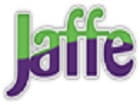
Matthew H. Tranter
Signed into law on March 27, 2020, the Coronavirus Aid, Relief, and Economic Security Act, or CARES Act, an amendment to the Small Business Act, is a massive federal economic stimulus package intended to mitigate the economic consequences of the ongoing coronavirus pandemic. (CARES Act § 1102, 1106, Pub. L. 116-136 (Mar. 27, 2020). The $2 trillion package includes the $349 billion Paycheck Protection Program (PPP), which grants potentially-forgivable loans intended to help small businesses meet payroll needs and keep their workers employed. An additional $320 billion was added to the PPP late last month. Given its size and complexity, companies participating or benefiting from the PPP or the CARES Act may face legal risk.
Some suits have already been brought. Among the first is a proposed class action lawsuit filed in the U.S. District Court for the District of Maryland against the Bank of America. In the suit, several businesses protest BofA's gating policy for the PPP, alleging that the bank originally limited its PPP applicants to those with preexisting borrowing relationships with the bank. BofA soon expanded its policy to include deposit-only clients so long as that the client did not have a credit or borrowing relationship with another bank. The plaintiffs, in their operative amended complaint, claimed that BofA's gating policies—which are not provided under the CARES Act — kept them "from exercising their statutory right to apply for PPP" loans.
Plaintiffs moved for a TRO and preliminary injunction, seeking to enjoin BofA from using those gating policies. Although an issue of first impression, the District Court on April 13, 2020 held that the plaintiffs faced a "threshold obstacle," namely that there is no express private right of action in the CARES Act. Profiles, Inc., et al. v. Bank of America Corp., et al., No. SAG-20-0894, slip op. (D. Md. Apr. 13, 2020). The Court further found that the Act did not contain an implied right of action. Id. Accordingly, the plaintiffs could not show that they were likely to succeed on the merits. And, the Court went on to find that even if there was an implied right of action under the CARES Act, BofA's gating policies did not violate it. While the CARES Act had eligibility criteria for PPP borrowers, the Court determined it did not limit lenders' criteria to those statutorily provided. In the end, the Court denied the plaintiffs' request for a TRO and preliminary injunction. The suit continues, and while the plaintiffs' request for a "stay" has already been denied, they have appealed to the Fourth Circuit.
Beyond this first bite, the PPP, Cares Act, and the overall COVID-19 stimulus picture remain fluid. Published reports of other wealthy applicants receiving "concierge treatment" from financial institutions may spawn similar suits. Although it will be years before these cases are concluded, Senators on both sides of the aisle have expressed frustration with purported PPP abuse, and some have already threatened to exercise aggressive oversight. Moreover, PPP borrowers may face potential claims brought by the DOJ or qui tam whistleblowers under the False Claims Act, 31 U.S.C. § 3729, et seq., a tool for the government to combat fraud. Additional stimulus legislation (see here and here) can be expected to introduce new complications as well.
Given this rapidly shifting ground, Goodell Devries continues to track risks companies may face from COVID-19 stimulus packages. If you or your business have questions about navigating the benefits, burdens, and commercial risks created by the PPP, the CARES Act, or other coronavirus-related legislation, please contact the author, Matthew Tranter.
About Goodell DeVries
Goodell DeVries is a regional law firm with a national presence. From product liability and mass torts to medical malpractice law, complex commercial litigation, insurance, toxic torts, and more, Goodell DeVries’s team of 50 attorneys handles the most complex legal challenges for clients across the country. Our lawyers are ranked among the best in the nation by leading directories, including Chambers, Best Lawyers and Super Lawyers. To learn more, visit www.gdldlaw.com.






